I’ve gotten a lot of e-mails recently about the swim portion of the triathlon. I used to be so scared of swimming and had a major panic attack during my first triathlon, resulting in me needing lifeguard assistance and my one and only DQ (disqualification). It took me a handful of races before I was comfortable in the water, and I continue to have ‘off’ race days where I am scared to get into the lake. But I’m getting better!
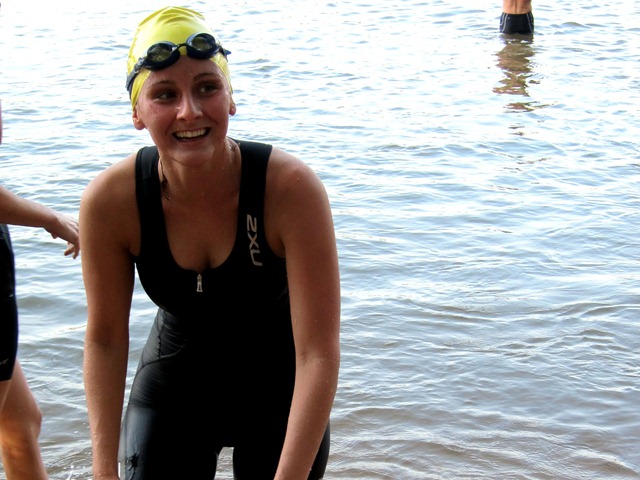
I decided to ask Coach Marni what she thought about swimming and what advice she gives athletes…. Take it away, Coach Marni!
Open Water Swimming (OWS): Is it more mental or physical?
OWS can be a combination of mental fears as well as physically being unable to swim efficiently in open water. It’s important to recognize that the only way to be a better OWS swimmer is to practice and to address both strengths and weaknesses. Here is a blog I did on swimming that may help explain some thoughts on swimming.
How can you physically prepare for the realities of OWS?
Don’t fear the distance and doubt yourself. Like everything in life and with sports, it is difficult before it becomes easy. It’s important to work hard and dedicate time to improve your fitness in the pool so that you improve your lung capacity and swimming muscles, but keep in mind that you do not have to be fast to earn your finisher medal at a triathlon. Many triathletes feel they need to be fast in the pool or worry about being last out of the water in a race and rush swim-training/fitness. But there are no rules as to how fast you have to swim to be a triathlete. Take all the time you need in training in the pool and rest on the walls to learn how to swim with good form.
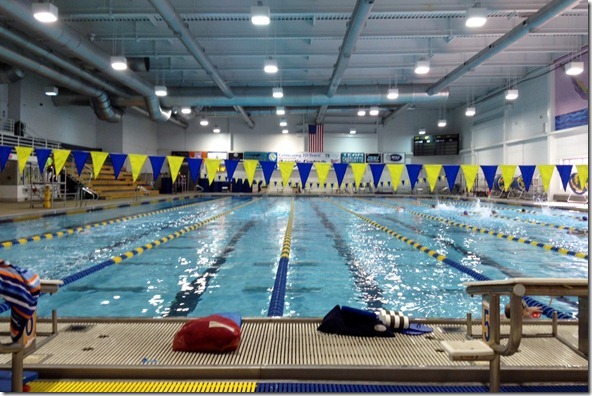
If swimming is your weaker sport, be sure to dedicate 2-3 sessions a week to swimming. The most important thing is learning the proper swim skills which can be done by working with a swim coach, taking lessons (Total Immersion swimming lessons) or watching videos on YouTube (Caitlin wrote a great post on this entitled Best How To Swim YouTube Videos). I would recommend to not spend your time in a workout doing "speed" sets for the first 10-20 sessions in the pool (limited to 30-40 minutes) if you are a new swimmer/triathlete. This way, you will not exhaust yourself in the pool or compromise other cardio workouts (run/bike).
The ultimate goal is to be able to swim the race distance by race week so progress slowly so that as you learn skills you also improve your endurance and stamina. Strength training will help with upper body and core strength and stretching after the workout (as well as doing a dynamic warm-up such as arm circles or stretch cord exercises) can also help with physical prep for a triathlon and OWS.
Additionally, when it comes to races, consider lake or river swims over ocean swims as you will likely have less chop and waves which will be easier for your first few racing experiences. A pool triathlon, such as the Ramblin’ Rose races if you’re in North or South Carolina, may also be a nice tune-up to practice transitions and pacing.
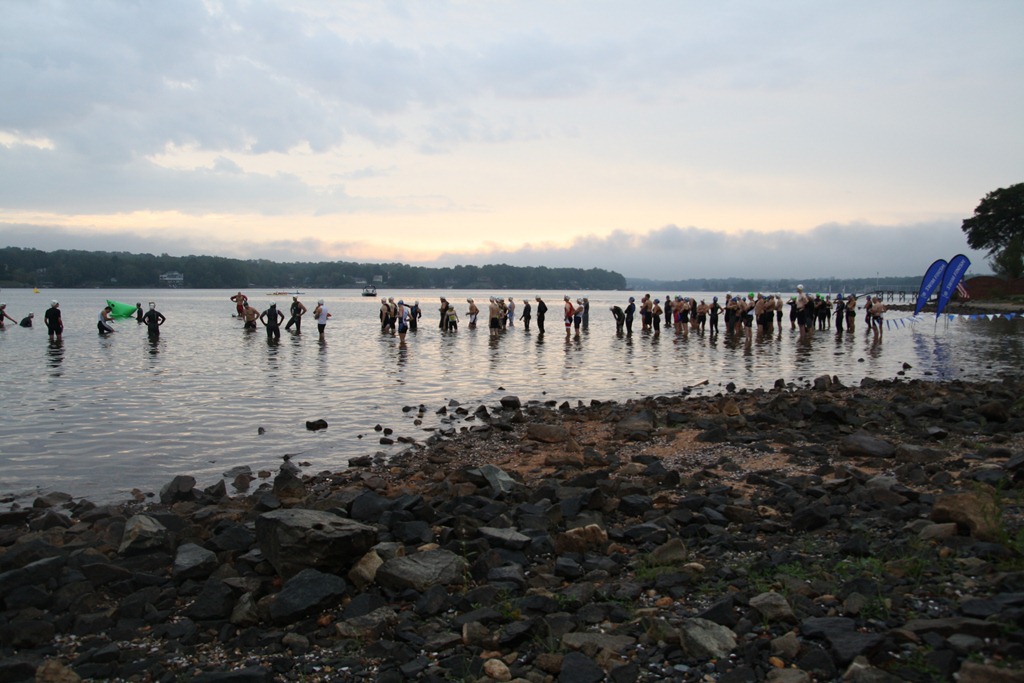
How can you mentally prepare for the realities of OWS?
Don’t put psych yourself out or get overwhelmed. You want to prepare for all the controllables, such as weather, the layout of the course , race start times, people around you, and your pace during the event. Before a race, you want to warm-up in the water (if allowed and weather permitting) or on dry land to get the blood flowing. This will help with your heart rate when you start the event.
It is important to practice in open water, preferably in a group or with others several times before the event. I usually recommend for my athletes who are not comfortable in open water or feel swimming is a weaker sport, to "train" in the pool for fitness gains (2-3 times per week) and then add 1 additional open water swim practice every 7-10 days just to get comfortable in the open water.
The most important thing with sports is to be confident. The moment you doubt yourself, your heart rate will go up, your digestive system may get out of whack (tummy upset/GI pain) and you may find yourself losing form and expending more energy than needed. Before a race, take a few minutes on race week to visualize yourself in the open water and how you plan to execute your race day swim. Do not be afraid to start near the back and to the outside so that you can swim in clean, smooth water.
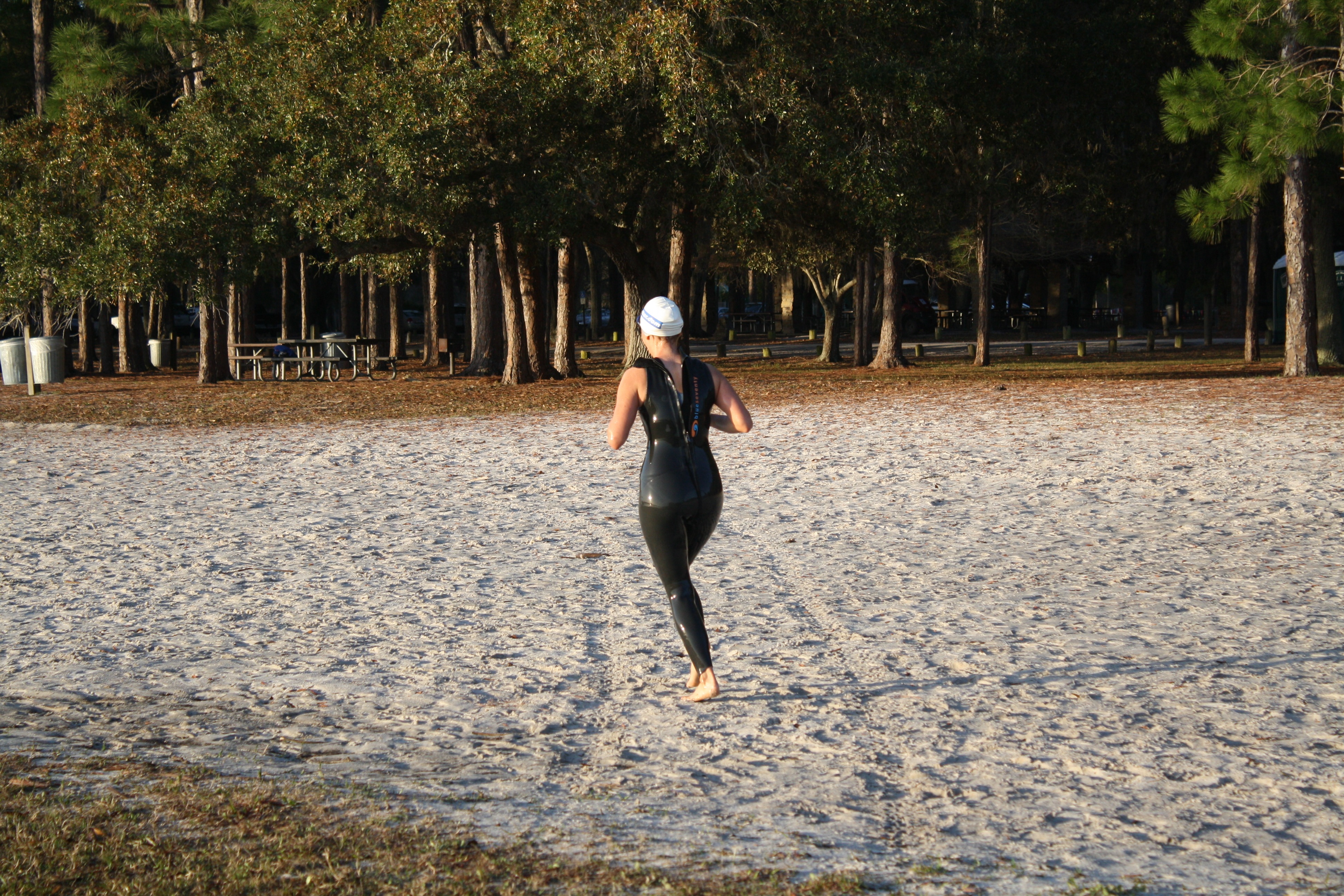
What’s your #1 piece of race day advice for triathletes who are nervous about swimming?
Give yourself some credit for what you are about to do on race day. Training for one sport (ex. running) is challenging but now you are training and racing for 3 sports! There are many people who are afraid to start the journey of learning new skills or something that is challenging. Take your time and not rush the process. Your primary goal on race day is to execute your training with your current level of fitness.
Keep in mind that your first race doesn’t have to be your last race. You can only get smarter and more skilled at anything you try for the first time. Oh – and have fun!!
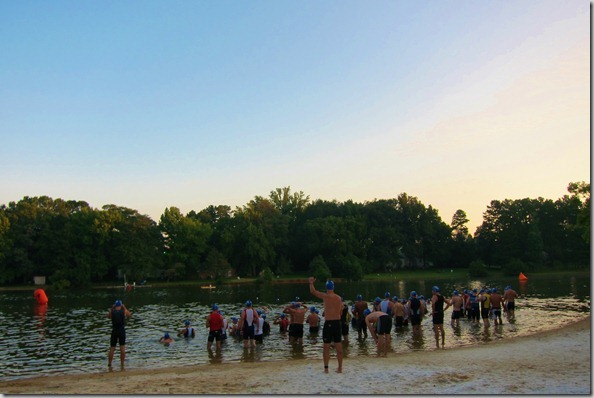
For more tips:
So You Wanna Do a Triathlon Series

I’m one of those panic-in-the-open-water swimmers but strangely I only panic when I wear a wetsuit. I want to do another tri but I haven’t been able to figure out why I can’t swim in a wetsuit. I’ve tried everything and no one seems to be able to explain it. I’m a medical triathlete mystery I guess.
How often do you swim in open water Caitlin? Maybe it’s just a matter of doing it again and again…